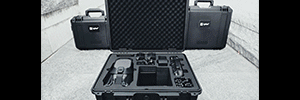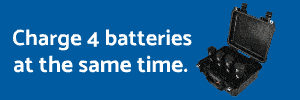Hi all,
I am in the unfortunate position that all of my Mavic 2 batteries are swelling after almost one year of use. This is despite only 30 charges each.
I have decided to test DJIs warranty under Australian Consumer Law.
It is the case under Australian law that phone batteries must last 2 years, or the expected life of the phone. Now I would expect a DJI $250 battery to last more than 30 charges or roughly 2 years as well.
I will let you know how I get on with the ACCC (our Consumer Protection department) when I open a case. In Australia a company cannot simply write a warranty. The goods must last an acceptable amount of time or they can be repaired, replaced or refunded at the consumers discretion. As I said, that is 2 years for a phone and battery so I might have a good case here.
Wish me luck!
I am in the unfortunate position that all of my Mavic 2 batteries are swelling after almost one year of use. This is despite only 30 charges each.
I have decided to test DJIs warranty under Australian Consumer Law.
It is the case under Australian law that phone batteries must last 2 years, or the expected life of the phone. Now I would expect a DJI $250 battery to last more than 30 charges or roughly 2 years as well.
I will let you know how I get on with the ACCC (our Consumer Protection department) when I open a case. In Australia a company cannot simply write a warranty. The goods must last an acceptable amount of time or they can be repaired, replaced or refunded at the consumers discretion. As I said, that is 2 years for a phone and battery so I might have a good case here.
Wish me luck!













